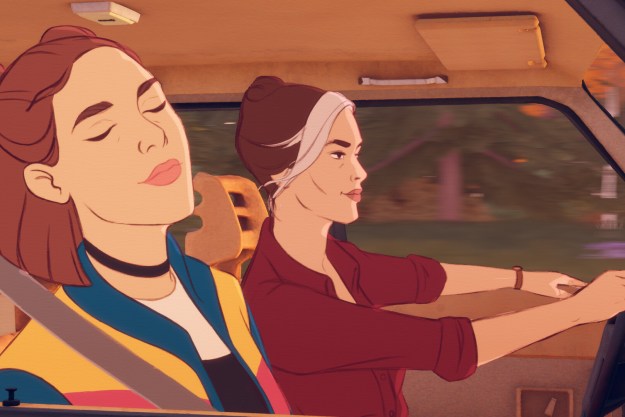Doki Doki Literature Club! is a psychological horror game dressed as a cutesy anime dating sim — and it’s also one of the internet’s worst-kept secrets. In fact, some marketing materials say it right in the description. What’s less apparent is how it separates itself from other horror games with the way it disrupts your sense of normalcy and breaks your favorite characters like dolls in the process.
I played Doki Doki Literature Club to celebrate Halloween because I knew it was a horror game. However, I didn’t know how it was a horror game until I experienced it for myself. Creator Dan Salvato told Kotaku that he took inspiration from “things that are scary because they make you uncomfortable, not because they shove scary-looking things in your face.” Doki Doki Literature Club! faithfully follows his description as it establishes a norm that it pulls out from under your feet. It scares players with the stark contrast between its first two arcs and warns them to watch their step as they click through the dialogue.
High school horror

As advertised, Doki Doki Literature Club! starts as your typical high school romance. It’s something familiar to anime trope lovers across the internet. You play as the bland male protagonist who could use some excitement in his life. His childhood friend drags him into joining the Literature Club, which just happens to be full of cute girls. Understandably, he takes it as an opportunity to learn about more than just literature.
Players write poems using seemingly random words that appeal to specific characters. Some words like “starscape” match Yuri, the introverted bookworm who prefers imagery in her poems. More romantic words like “daydream” better suit Sayori. Players witness different cutscenes related to these characters depending on which girls like their poems. If you choose cutesy words to cater to Natsuki, then you learn more about her during the next cutscene. You can also choose who to work with on festival preparations, how to disrupt a club argument, and so on. However, that all goes out the window after the game takes a bloody turn.

The ending of the first act establishes a new norm: Choices no longer matter. After the first character dies, they appear as a glitchy mess on the title screen. All the save files are gone, so redos are out of the question. Once you attempt a new game, you find a rewritten premise without the dead character. It becomes more and more obvious that the game isn’t going to work the way you thought it did. It really makes you think, “Wow, they had me in the first half.”
The protagonist, who at least had a trace of a personality in the first act, has seemingly disappeared. He becomes a non-character — or just a vessel that the player uses to experience the game. There’s no commentary on the creepy glitches or interactions. Only the player experiences the jump scares, bloated black text, and snaps in character.

It’s not just how the game works, though. It’s how the characters act. Players know enough about the characters from the first act to have an idea of how they typically behave. Even the characters in the game note how they don’t feel like themselves or that the others seem to be acting more strangely than usual. There’s just enough of the core game left that it’s hard to predict what will really happen and who the next victim might be.
I didn’t play Doki Doki Literature Club! completely blind. Still, I feared what the next textbox would bring once I realized that act two was a brand new game. Subtle changes hinted at the upcoming surprises — like an uncharacteristic facial expression or black text bubbles with strange, bloated letters. Once the moment passed, I would ease up, only for the emotional roller coaster to charge uphill again.

Doki Doki Literature Club twists a fluffy dating sim into a high school horror that kills off your friends. It makes you question your choices and effectively limits them at the same time. If a game could have a mental breakdown, this would be it. That’s what makes it scary.
Doki Doki Literature Club is one of the best free-to-play games available on PC. It also has an expansion available on PC, PlayStation 4, PlayStation 5, Xbox One, Xbox Series X/S, and the Nintendo Switch for a price. It’s worth recommending to people who don’t like horror played straight. However, it isn’t suitable for children or easily disturbed folks.
Editors' Recommendations
- May is packed with great games, but don’t miss these 3 hidden gems
- This precious Game Pass adventure let me see the world through my cat’s eyes
- Don’t ask questions! Just play this wild and weird nun game
- Lorelei and the Laser Eyes could be one of 2024’s best and boldest games
- This $15 Steam game is a must-buy for Zelda fans



